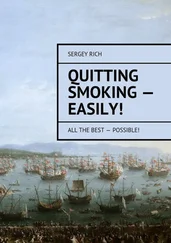“Opposite the bride are the fathers and the mothers, all four. Their time is passed and they have had their day. Yet this too is a pleasure and a part for them to play. I can’t tell which is the suitor whom the bride refused, but I know he is there too, perhaps among the crush that crowds the door. He is present and he looks from a distance like death at happiness. Meanwhile in the foreground a handsome young man pours from a jug which has the comely form of a woman’s body the wine which will bring all of them exaltation like light. His bending body is curved in a grace like harps or violins. Marcus, open a new bottle.”
Marcus obeyed, and after the pop, the puff, the foam, and the flow, he poured the wine in glasses.
“I suppose everything is all right,” said Laura, “I suppose everything is just fine.”
“No,” said Jacob, “I don’t mean to say that this life is just a party, any kind of party. It is a wedding, the most important kind of party, full of joy, fear, hope, and ignorance. And at this party there are enough places and parts for everyone, and if no one can play every part, yet everyone can come to the party, everyone can come to the wedding feast, and anyone who does not know that he is at a wedding feast just does not see what is in front of him. He might as well be dead if he does not know that the world is a wedding.”
“You can’t fool me,” said Laura, “the world is a funeral. We are all going to the grave, no matter what you say. Let me give all of you one good piece of advice: Let your conscience be your bride .”
from IN DREAMS BEGIN RESPONSIBILITIES (1938)
The Ballad of the Children of the Czar
1
The children of the Czar
Played with a bouncing ball
In the May morning, in the Czar’s garden,
Tossing it back and forth.
It fell among the flowerbeds
Or fled to the north gate.
A daylight moon hung up
In the Western sky, bald white.
Like Papa’s face, said Sister,
Hurling the white ball forth.
2
While I ate a baked potato
Six thousand miles apart,
In Brooklyn, in 1916,
Aged two, irrational.
When Franklin D. Roosevelt
Was an Arrow Collar ad.
O Nicholas! Alas! Alas!
My grandfather coughed in your army,
Hid in a wine-stinking barrel,
For three days in Bucharest
Then left for America
To become a king himself.
3
I am my father’s father,
You are your children’s guilt.
In history’s pity and terror
The child is Aeneas again;
Troy is in the nursery,
The rocking horse is on fire.
Child labor! The child must carry
His fathers on his back.
But seeing that so much is past
And that history has no ruth
For the individual,
Who drinks tea, who catches cold,
Let anger be general:
I hate an abstract thing.
4
Brother and sister bounced
The bounding, unbroken ball,
The shattering sun fell down
Like swords upon their play,
Moving eastward among the stars
Toward February and October.
But the Maywind brushed their cheeks
Like a mother watching sleep,
And if for a moment they fight
Over the bouncing ball
And sister pinches brother
And brother kicks her shins,
Well! The heart of man is known:
It is a cactus bloom.
5
The ground on which the ball bounces
Is another bouncing ball.
The wheeling, whirling world
Makes no will glad.
Spinning in its spotlight darkness,
It is too big for their hands.
A pitiless, purposeless Thing,
Arbitrary and unspent,
Made for no play, for no children,
But chasing only itself.
The innocent are overtaken,
They are not innocent.
They are their father’s fathers,
The past is inevitable.
6
Now, in another October
Of this tragic star,
I see my second year,
I eat my baked potato.
It is my buttered world,
But, poked by my unlearned hand,
It falls from the highchair down
And I begin to howl.
And I see the ball roll under
The iron gate which is locked.
Sister is screaming, brother is howling,
The ball has evaded their will.
Even a bouncing ball
Is uncontrollable,
And is under the garden wall.
I am overtaken by terror
Thinking of my father’s fathers,
And of my own will.
In the Naked Bed, in Plato ’ s Cave
In the naked bed, in Plato’s cave,
Reflected headlights slowly slid the wall,
Carpenters hammered under the shaded window,
Wind troubled the window curtains all night long,
A fleet of trucks strained uphill, grinding,
Their freights covered, as usual.
The ceiling lightened again, the slanting diagram
Slid slowly forth.
Hearing the milkman’s chop,
His striving up the stair, the bottle’s chink,
I rose from bed, lit a cigarette,
And walked to the window. The stony street
Displayed the stillness in which buildings stand,
The street-lamp’s vigil and the horse’s patience.
The winter sky’s pure capital
Turned me back to bed with exhausted eyes.
Strangeness grew in the motionless air. The loose
Film grayed. Shaking wagons, hooves’ waterfalls,
Sounded far off, increasing, louder and nearer.
A car coughed, starting. Morning, softly
Melting the air, lifted the half-covered chair
From underseas, kindled the looking-glass,
Distinguished the dresser and the white wall.
The bird called tentatively, whistled, called,
Bubbled and whistled, so! Perplexed, still wet
With sleep, affectionate, hungry and cold. So, so,
O son of man, the ignorant night, the travail
Of early morning, the mystery of beginning
Again and again,
while History is unforgiven.
The Beautiful American Word, Sure
The beautiful American word, Sure,
As I have come into a room, and touch
The lamp’s button, and the light blooms with such
Certainty where the darkness loomed before,
As I care for what I do not know, and care
Knowing for little she might not have been,
And for how little she would be unseen,
The intercourse of lives miraculous and dear.
Where the light is, and each thing clear,
Separate from all others, standing in its place,
I drink the time and touch whatever’s near,
And hope for day when the whole world has that face:
For what assures her present every year?
In dark accidents the mind’s sufficient grace.
Far Rockaway
“the cure of souls.” HENRY JAMES
The radiant soda of the seashore fashions
Fun, foam, and freedom. The sea laves
The shaven sand. And the light sways forward
On the self-destroying waves.
The rigor of the weekday is cast aside with shoes,
With business suits and the traffic’s motion;
The lolling man lies with the passionate sun,
Or is drunken in the ocean.
A socialist health takes hold of the adult,
He is stripped of his class in the bathing-suit,
He returns to the children digging at summer,
A melon-like fruit.
O glittering and rocking and bursting and blue
— Eternities of sea and sky shadow no pleasure:
Time unheard moves and the heart of man is eaten
Consummately at leisure.
The novelist tangential on the boardwalk overhead
Seeks his cure of souls in his own anxious gaze.
“Here,” he says, “With whom?” he asks, “This?” he questions,
“What tedium, what blaze?”
“What satisfaction, fruit? What transit, heaven?
Читать дальше












